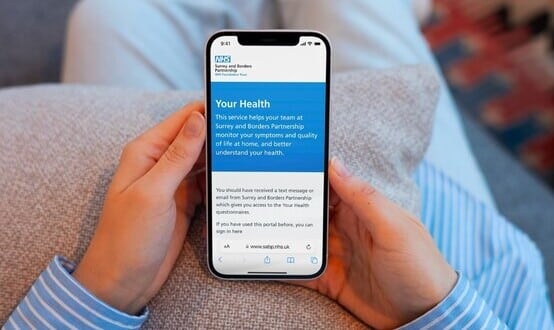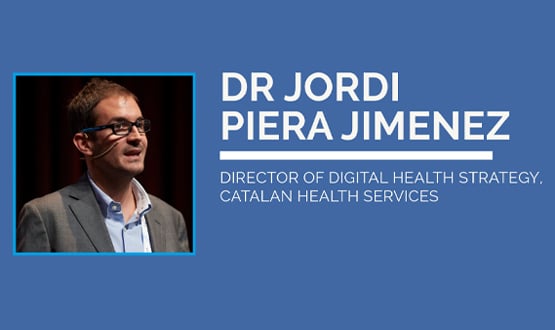Plymouth to be NHS first on open e-prescribing
- 25 September 2017

Plymouth Hospitals NHS Trust has become the first NHS trust to begin implementation of an open source, open standards-based electronic prescribing system.
The organisation plans to start using the system – the first of its kind – from June 2018.
At the beginning of this year, the trust appointed CGI to help it implement the OpenEHR system. E-prescribing will be the first module to go live, to be incrementally followed by open order communications and open e-observations.
OpenEHR is the open standards electronic health architecture, and supported by Slovenian company Marand. An Anglicised version of its e-prescribing module has been developed under the Code4Health Initiative, including clinical assurance by NHS Digital.
NHS Digital have also contributed to the funding of the first of its kind project, which initially received a Tech Fund award.
Speaking at a Tuesday OpenEHR event in Salford Andy Blofield, IT director at Plymouth, explained the approach was driven by financial necessity, as the trust had no money, “we had no options”, but also fitted with its incremental development approach.
Plymouth, one of the biggest single site hospitals in the country, is a best of breed trust which implemented an EPR in 2005, “something I don’t want to do again,” said Blofield. The trust has had order communications since 2004 and has refreshed PACS/RIS three times.
“Most worryingly, we’ve got something like 190 different departmental solutions – some are good, some are less good,” said Blofield.
“It all kind of does its job, but boy is it complex,” he jokes. “And even if you can get past the complexity, you are very heavily locked in.”
“Our longer term strategy, actually our only strategy, is that we want a single integrated digital care record that everyone contributes to.”
Blofield said the evidence suggested the key benefits of electronic records come from having a common shared record. “That’s where the main benefits of an integrated record come from: from everyone contributing to same record.”
He says one way to achieve that is to go down the Epic route. “But that means proprietary lock-in, vendor lock-in in spades. Epic make a big deal that they’ve never lost a customer – that’s hardly surprising – once you’ve gone on it, do you really want to come off it?”
Even if the trust were prepared to accept this level of lock-in it could simply never afford a solution like Epic. “For a trust like us it would cost £80m to put one of those solutions in over 10 years,” said Blofield. “Try taking that to NHS Improvement – they just wouldn’t know how to take that seriously.”
Blofield explained that this meant Plymouth had no choice but to go for an open standards approach. “For our trust where we haven’t got a pot to pee in – this really is the only game in town.”
He said open standards fit with the trust’s resources and approach. “I’m much more in tune with an incremental approach.”
“We want total vendor neutrality. We want a single MPI (Message Passing Interface) across the South West. We want a standard integration architecture we can federate out. We want all clinical apps to go through it.”
He explained that the trust had a stroke of luck with an e-prescribing procurement. “We went to market for e-prescribing, got to the end of the OJEU (Official Journal of the European Union) process but didn’t appoint anyone as we didn’t meet anyone who met needs. So while linking wounds CGI introduced us to Marand. From a technical perspective we were completely aligned.”
The trust scored Marand and OpenEHR against its original OJEU requirement and found they came out on top. They were subsequently named as a preferred supplier and the two organisations began working together at the beginning of the year.
Marand’s most high profile reference site is the City of Moscow, which uses OpenEHR to deliver care to five million people.
Blofield described open electronic prescribing as the trust’s “starting place to move forward”. The application will be delivered through a portal that is fully seamlessly integrated into the trust’s existing systems and workflow. The trust runs an old iPM patient administration system (PAS) and Solus locally-developed clinical portal.
“We control the source code, it’s open standards and we have a partnership with CGI to help deploy. We’ve got all of the control but significantly more flexibility,” said Blofield. “We aren’t saying no to commerciality, as we can’t do it all, but we don’t want to buy licences.”
He stressed that the trust also wants to use the incremental development and open platform approach to work with SMEs to help re-invigorate the market. “Pre-NPFIT we used to see a plethora of innovation and we want to help get back to that.”





7 Comments
Five comments and only two are visible? Why is that?
Maybe you should stop the sniping and actually read the OpenEHR architecture documents to better inform yourselves. #snakeoiltrolls
Just to point out NHS Digital have not contributed any funding to this project, they have however provided vital advice, information, support and guidance to enable the solution to be developed to the required clinical safety standards.
Plymouth were awarded £1.4m back in 2014 from TF1; fast forward past all the checks and balances and VFM and ROI requirements of TF1 to 2017…
Hooray! openEP!
Marand made the first public commit of openEP (as an ‘example’) to github in 2014. The second commit was 20 Sept 2017.
Hooray! openEP!
I would suggest your own is post is fake news Tor. OpenEHR is supported by more than one company.
http://www.openehr.org/industry_partners/
and you are anything but locked in. Indeed there is nothing stopping your own clinicians contributing to the archetypes in the same way as HL7.org precludes IT professionals from contributing to those specifications.
There are multiple vendors available, plus Open Source CDR instances such as EtherCIS. Not sure what you think about the significant steps taken by Moscow – sounds like your are a troll to me. If Moscow did not take OpenEHR, why would they claim they did? Not that you can run an entire ecosystem off the CKM and CDR – these are components to aid interoperability.
To expand on my comments.
The Moscow implementation is a IHE XDS based system, which can supply OpenEHR artefacts in addition to other documents. It can be used without OpenEHR. It’s not the other way around and I think it’s wrong and misleading to give the impression it is.
Our definition of open source are different. I’m a developer (mostly using open source tools) and expect a certain amount of information to be available without contacting a vendor. I don’t see that with OpenEHR. Probably likewise modellers don’t see the same support from other standards.
I have no gripe with OpenEHR and would take a deeper look if I could. Sorry but that’s my opinion.
Lastly I use an anonymous name because of where I work not for any trolling purposes.
Comments are closed.